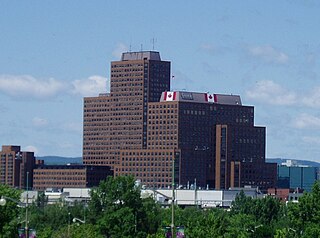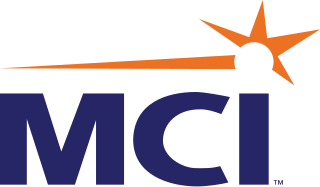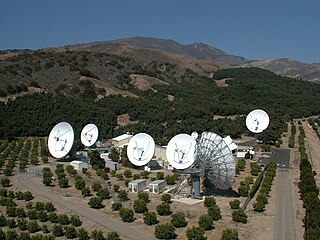
The Canadian Radio-television and Telecommunications Commission is a public organization in Canada with mandate as a regulatory agency for broadcasting and telecommunications. It was created in 1976 when it took over responsibility for regulating telecommunication carriers. Prior to 1976, it was known as the Canadian Radio and Television Commission, which was established in 1968 by the Parliament of Canada to replace the Board of Broadcast Governors. Its headquarters is located in the Central Building of Les Terrasses de la Chaudière in Gatineau, Quebec.
With Macau's small population and market, only a few media options are available for the local people. Because radio signals, newspapers and magazines from Hong Kong are available in Macau, the local media are always a minority group in terms of sales and number of viewers.
The People's Republic of China possesses a diversified communications system that links all parts of the country by Internet, telephone, telegraph, radio, and television. The country is served by an extensive system of automatic telephone exchanges connected by modern networks of fiber-optic cable, coaxial cable, microwave radio relay, and a domestic satellite system; cellular telephone service is widely available, expanding rapidly, and includes roaming service to foreign countries. Fiber to the x infrastructure has been expanded rapidly in recent years.

The primary regulator of communications in the United States is the Federal Communications Commission. It closely regulates all of the industries mentioned below with the exception of newspapers and the Internet service provider industry.

The Federal Communications Commission (FCC) is an independent agency of the United States federal government that regulates communications by radio, television, wire, satellite, and cable across the United States. The FCC maintains jurisdiction over the areas of broadband access, fair competition, radio frequency use, media responsibility, public safety, and homeland security.
Communications in Zimbabwe refers to the communication services available in Zimbabwe.

MCI Communications Corp. was a telecommunications company headquartered in Washington, D.C. that was at one point the second-largest long-distance provider in the United States.

The Telecommunications Act of 1996 was the first significant overhaul of United States telecommunications law in more than sixty years, amending the Communications Act of 1934. The Act, signed by President Bill Clinton, represented a major change in American telecommunication law, since it was the first time that the Internet was included in broadcasting and spectrum allotment.

The Telecommunications policy in the US is a framework of law directed by government and the Regulatory Commissions, most notably the Federal Communications Commission. Two landmark acts prevail today, the Communications Act of 1934 and the Telecommunications Act of 1996. The latter was intended to revise the first act and specifically to foster competition in the telecommunications industry.
Digital radio is the use of digital technology to transmit or receive across the radio spectrum. Digital transmission by radio waves includes digital broadcasting, and especially digital audio radio services.
Superstation is a term in North American broadcasting that has several meanings. Commonly, a "superstation" is a form of distant signal, a broadcast television signal—usually a commercially licensed station—that is retransmitted via communications satellite or microwave relay to multichannel television providers over a broad area beyond its primary terrestrial signal range.
Subsidiary Communications Authorization (SCA) in the United States, and Subsidiary Communications Multiplex Operation (SCMO) in Canada, is a subcarrier on a radio station, allowing the station to broadcast additional services as part of its signal.
Satellite Business Systems, abbreviated as SBS, was a company founded by IBM, Aetna, COMSAT, that provided private professional satellite communications through its SBS fleet of FSS geosynchronous satellites, and was the first company to do so.
COMSAT is a global telecommunications company based in the United States.

WMXC is an AC radio station licensed to serve Mobile, Alabama, United States. The station is owned by San Antonio-based iHeartMedia and the broadcast license is held by iHM Licenses, LLC. Its studios are located inside the building of former sister television station WKRG-TV on Broadcast Drive in Mobile, and the transmitter is near Foley, Alabama.

KKHJ-FM is a radio station broadcasting an Adult Top 40 format. Licensed to Pago Pago, American Samoa, it serves American Samoa, the only U.S. territory south of the equator. The station is owned by South Seas Broadcasting, Inc. It originally signed on in November 1999 with a Hot AC format. South Seas Broadcasting is owned by Larry Fuss, Kirk Harnack, Joey Cummings and the estate of Smitty Lutu. Joey Cummings in the General Manager. In September 2017, the station moved from its longtime home in Pago Plaza to the second floor of the Aitulagi Building, on Fagaima Road in Tafuna, near the Pago Pago International Airport. Transmitting facilities are located atop Mt. Alava, overlooking Pago Harbor, with secondary facilities on Mt. Olotele, overlooking Tafuna.
KKBT is a radio station broadcasting an Urban Contemporary format. The station operates from facilities shared with KKHJ-FM and WVUV-FM on the second floor of the Aitulaga Building in Tafuna, near the Pago Pago International Airport. The transmitting tower is located atop Mt. Oletele. Licensed to Leone, American Samoa, the station is currently owned by Contemporary Communications LLC., whose principal Larry Fuss, is also President of South Seas Broadcasting, Inc., licensee of KKHJ-FM and WVUV-FM.
KSBS-FM is Samoa's first commercial FM radio station broadcasting a variety format including local Polynesian, oldies, easy listening music. KSBS-FM broadcasts religious programming on Sunday mornings as well as hourly news from BBC, NPR, VOA, Radio Australia and Radio New Zealand International. Licensed by the U.S. Federal Communications Commission to Pago Pago, American Samoa, it serves the general American Samoa area. Also known as "Island 92", KSBS-FM is owned by Samoa Technologies.
This article is about communications systems in American Samoa.

Robert D. Briskman is Technical Executive of Sirius XM Radio.








